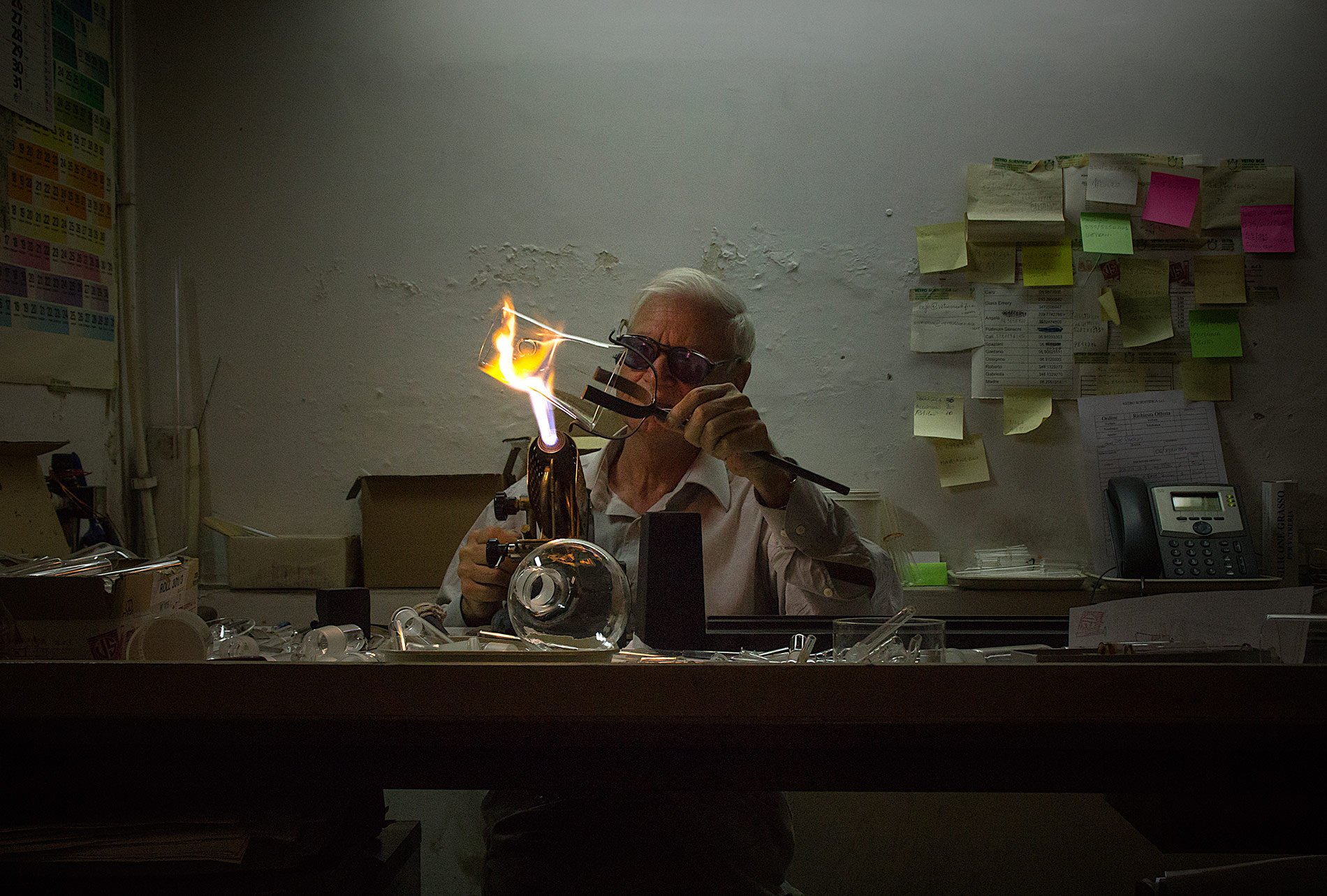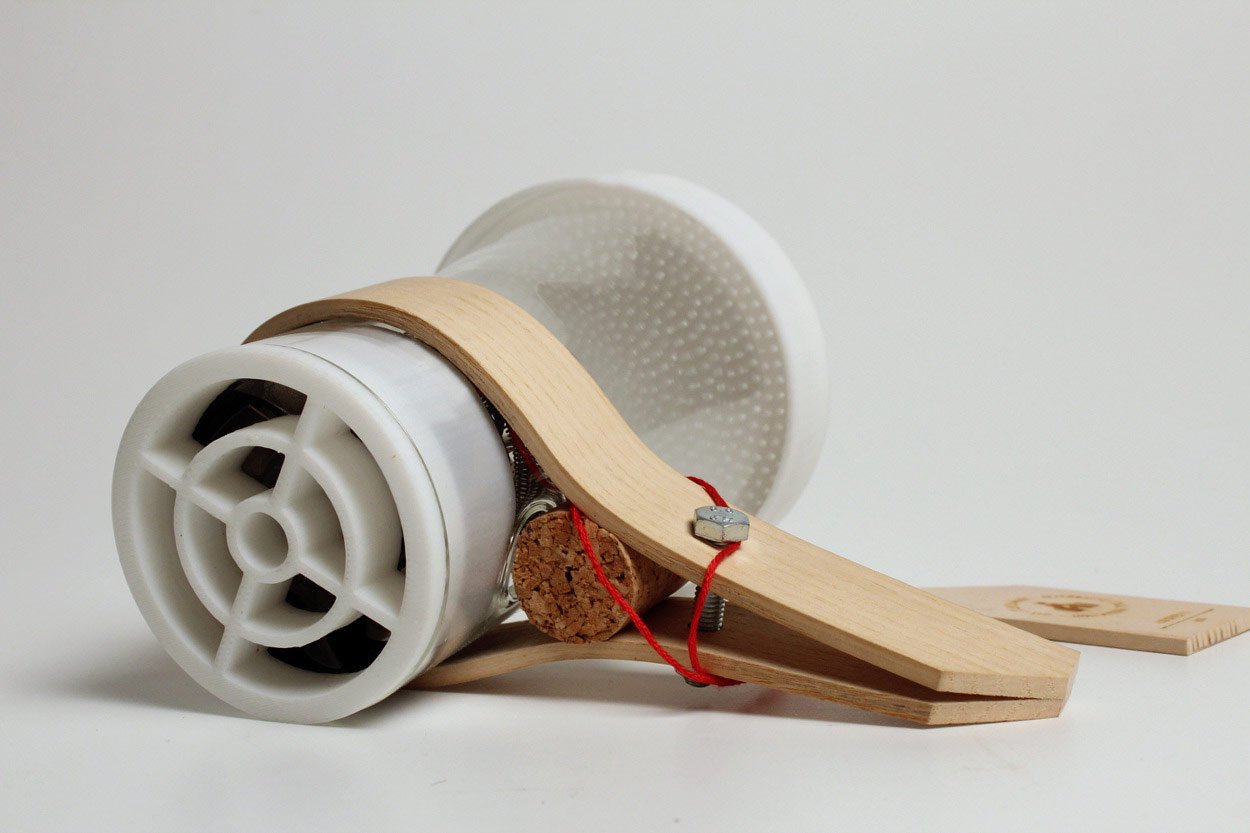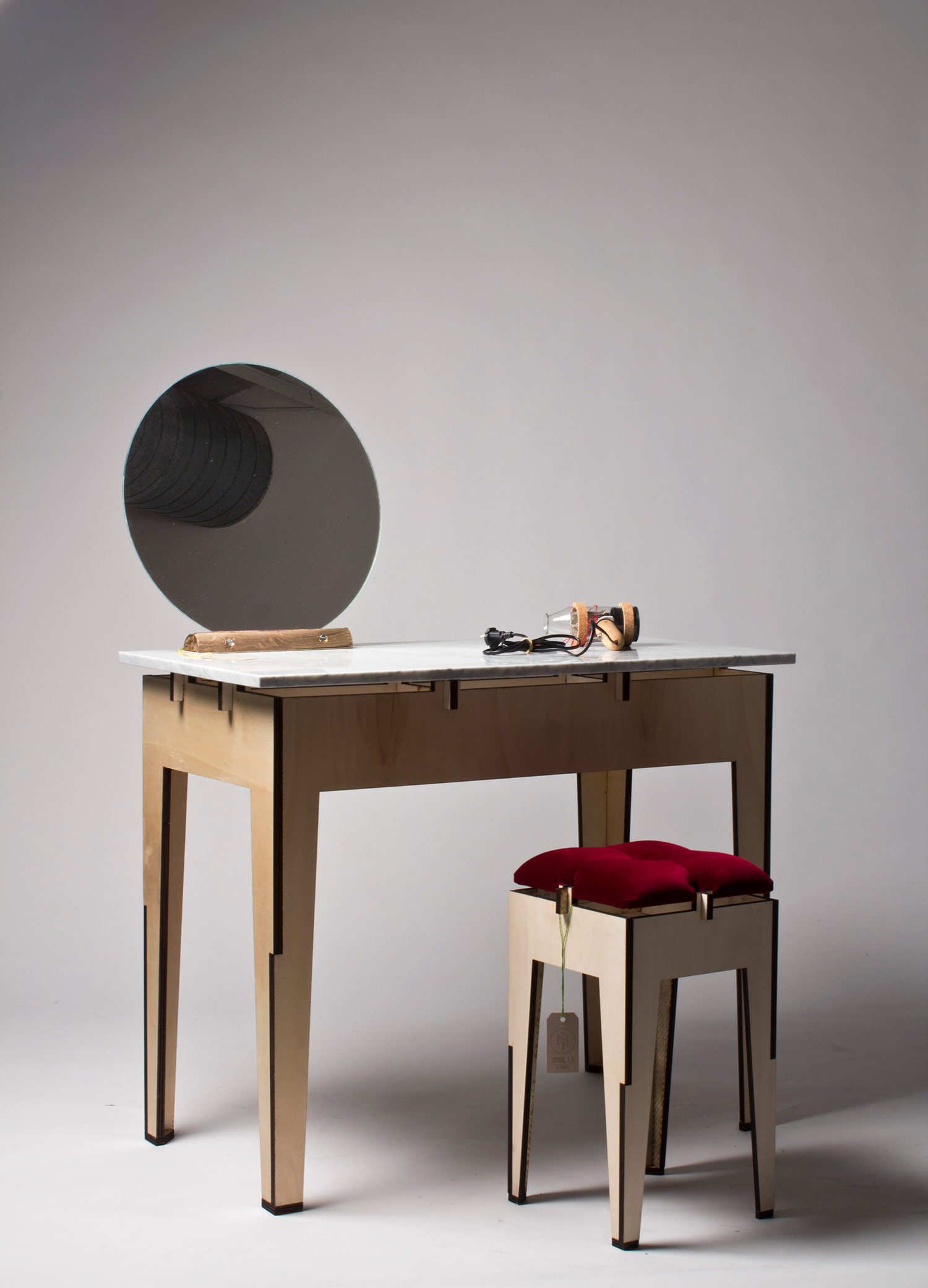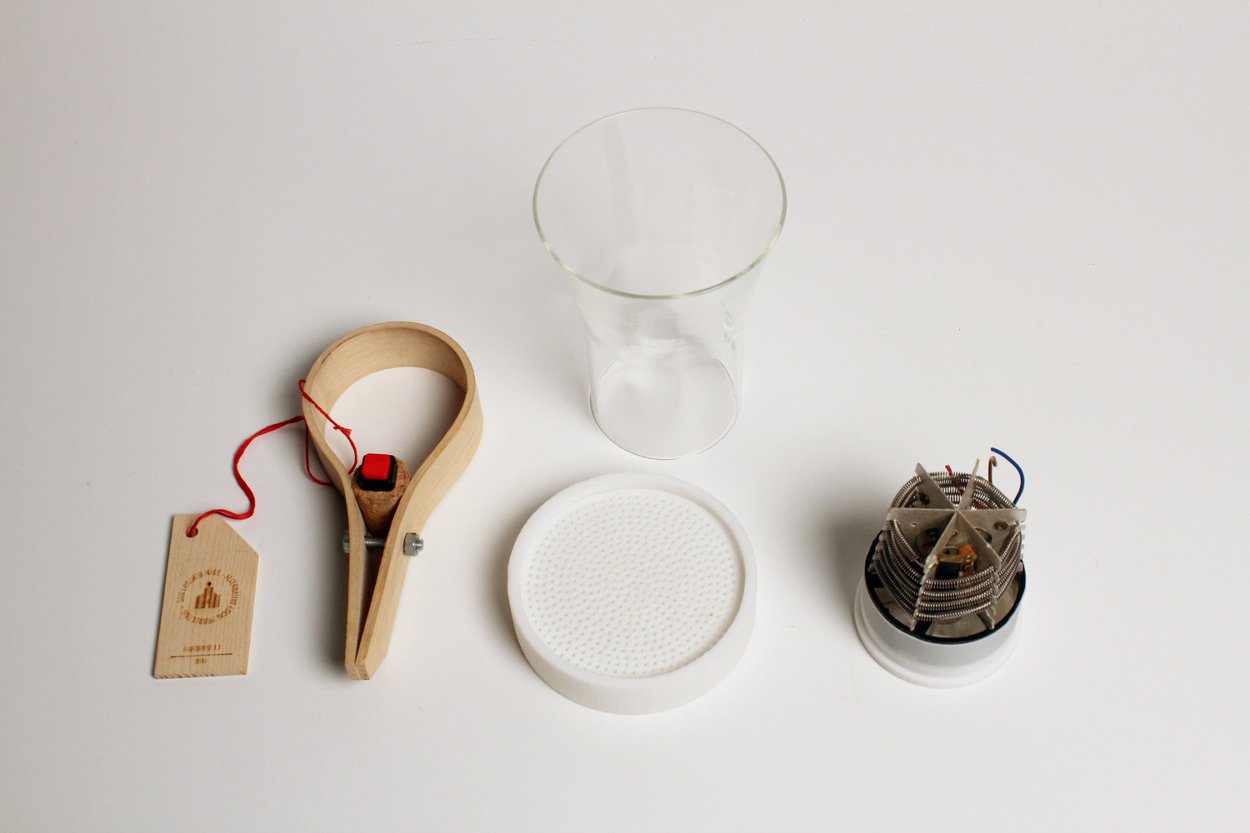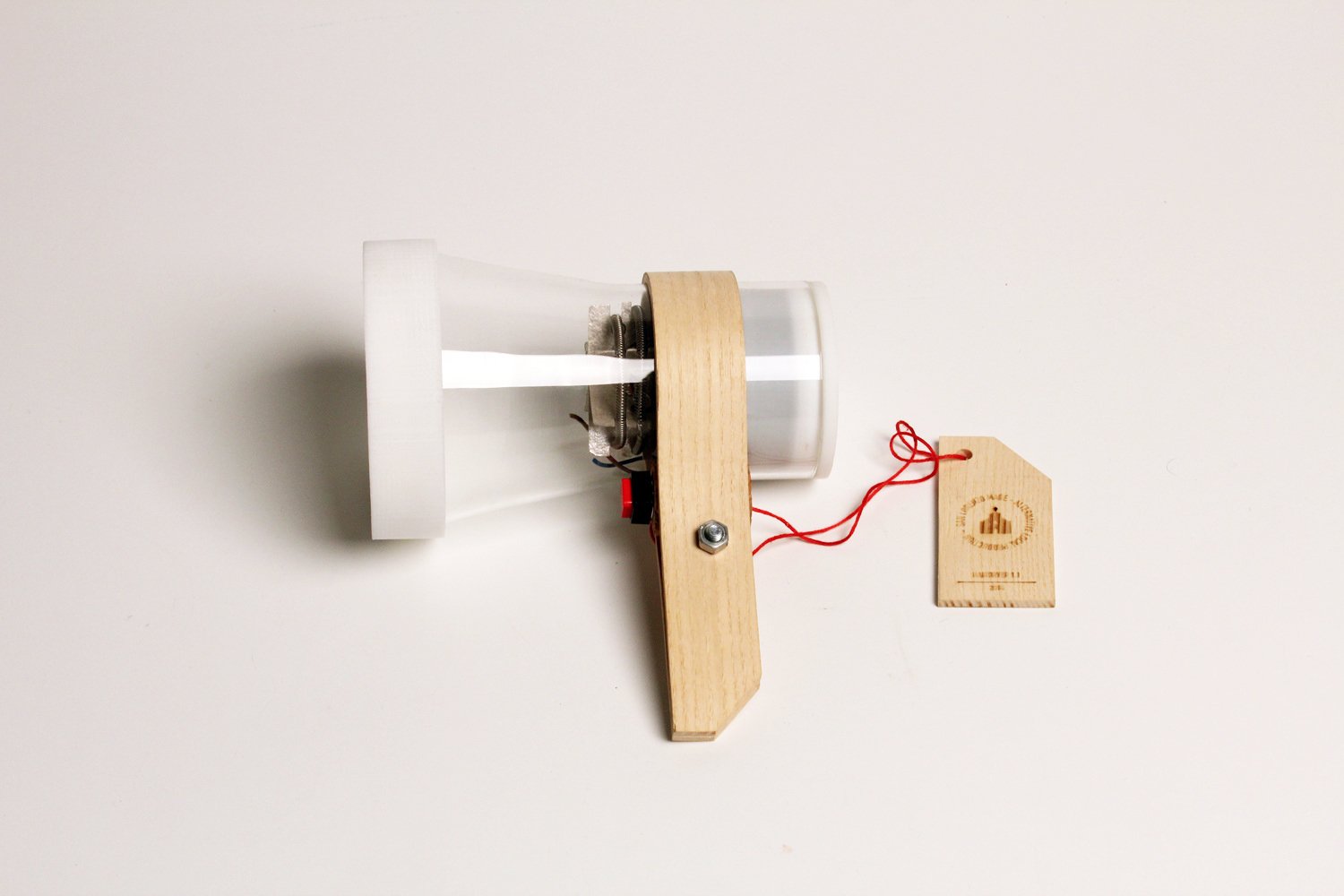Since the dawn of the Industrial Revolution and the globalization of mass manufacture, the modern world has never been the same. As the human population continues to grow and our standard of living reaches limitless heights, we fail to make choices that promote “thick value:” those actions which benefit an entire community over the long-term in an “authentic, meaningful, and sustainable” way. Designed by Andrea de Chirico for his Master’s thesis in Social Design at the Design Academy Eindhoven, SUPERLOCAL, 0 miles production thoughtfully brings these issues to light. By utilizing local resources and labor, Chirico was able to construct a mirror, lantern, stool, table, and hairdryer without any overseas shipping or uncomfortable work conditions. In fact, the compact system is so short it could be traveled by bike; not only does this clever revision of an out-of-date production model make better economic sense, but it’s better for the environment, too. “The goal of SUPERLOCAL is to provide an open production database for making everyday objects, and thereby give creative and critical tools to people for re-creating their world.” The current state of technology opens the door for this sharing-based “producer economy” wherein the user plays an increasingly significant role in the creative process. A universal dimensional grid makes it easy for every object to “learn, adapt, and evolve according to the context” such that all who are affected by the system have an opportunity to contribute; this is design democracy in its truest form. Workers are equal to clients are equal to peers in what Chirico likes to call “peer2peer production,” a belief that “knowledge must not be seen as a means of unlimited individual accumulation, nor a treasury generating differentiation and social exclusion but as a collective heritage which is a catalyst of economic and productive transformation.” SUPERLOCAL is the next step in the evolution of objects, from their substance and craft to their transport and implementation in daily life.



